Xcape # 12 - Walking the Path of the Samurai at the Samurai Museum ⚔ | Visiting Japans Best Skyline Lookout & Zauo Fishing Restaurant - Places to see in Shinjuku, Japan
Hey Steemit,
Carl from FML here with hopefully another exciting episode of Xcape. In this episode I’ll show you around Shinjuku, Tokyo as we visit some cool and fun attractions that I saw whilst travelling through Japan. Like Shibuya, which we explored in my previous blog, Shinjuku is a vibrant bustling district which is popular with local college students. The district is a sea of neon lights at night and has a wide variety of entertainment on offer. Below are some of my favourite attractions and sites to see when visiting Shinjuku. Feel free to check out some of the attractions I saw in my video below.
Tokyo Metropolitan Building
The Tokyo Metropolitan building is simply a must when you visit Shinjuku. It’s one of the few lookout points in the city which is free and provides amazing 360-degree views of the city. There are two (north & south), however I recommend you visit the south building during the day as you can easily see towards Odaiba’s entertainment district. If you wish to see the skyline at night the north observation deck is open until 10:30pm and provides fantastic views of Tokyo’s neon lights. Each observation deck is approximately 240m above ground so fantastic views of the city are guaranteed.
Personally, I believe the Tokyo Metropolitan Building lookout is one of the best lookouts in Tokyo and even better than the paid viewing platforms such as Tokyo Tower or the Tokyo Sky Tree which will cost 1500-2000 Yen to visit.
Below are a few of my photos from Tokyo Metropolitan Building including some of it’s amazing views from the observation deck. I’ve also provided some footage from the observation deck in my video above.
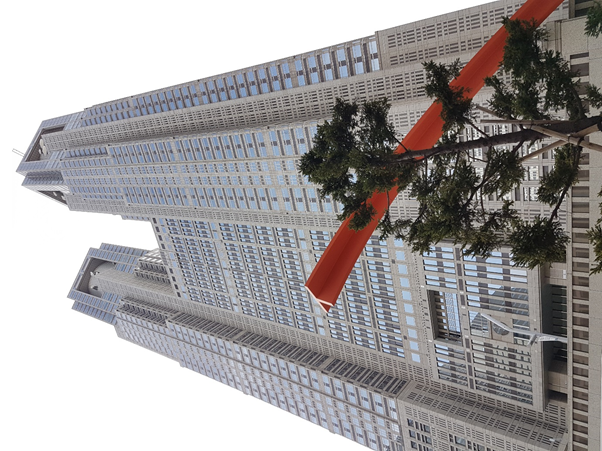
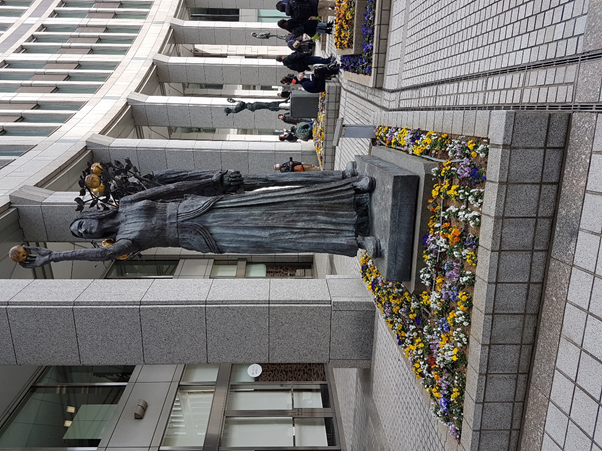
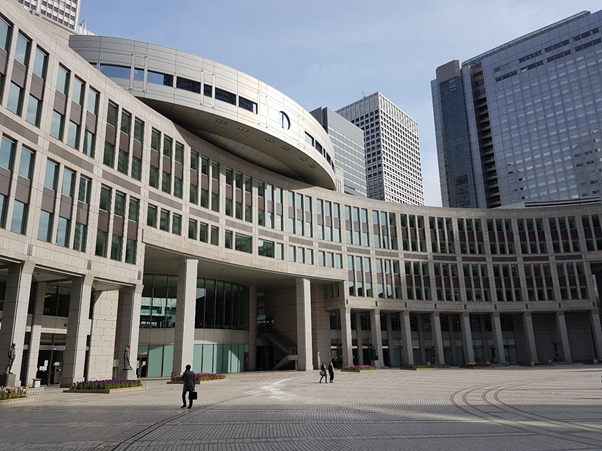
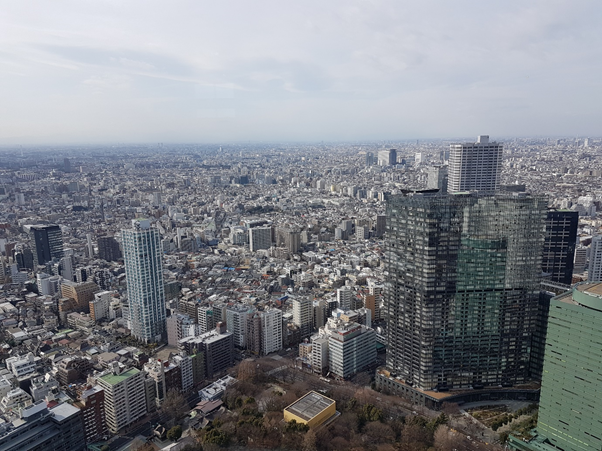
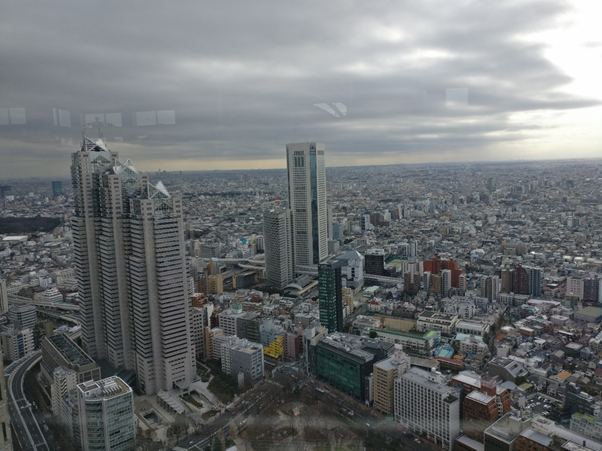
Shinjuku Gyoen National Garden
Just opposite Shinjuku Train Station you can also visit Shinjuku Gyoen National Garden. Entry into the park is 200 Yen and provides a fantastic array of different styled gardens which includes: French, English and Japanese style gardens. The park also has many other attractions including a greenhouse and lake views overlooking the city. During the spring, these gardens are a popular spot to see the cherry blossoms given that the park has many of them. The park itself is extremely peaceful and you’ll likely hear the chirps of birds and the occasional flicker of sprinklers, which in my mind is perfect for picnics. Check out a few of my photos from the park below.
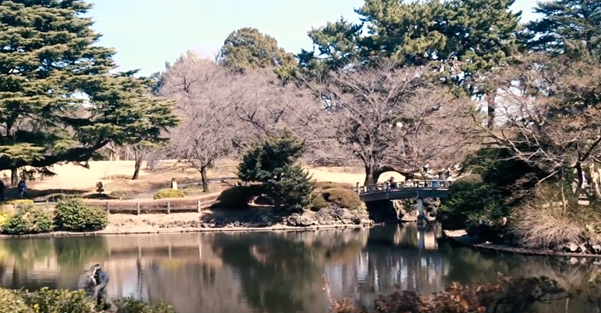
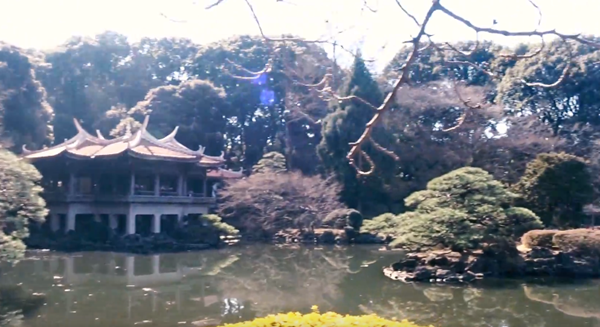
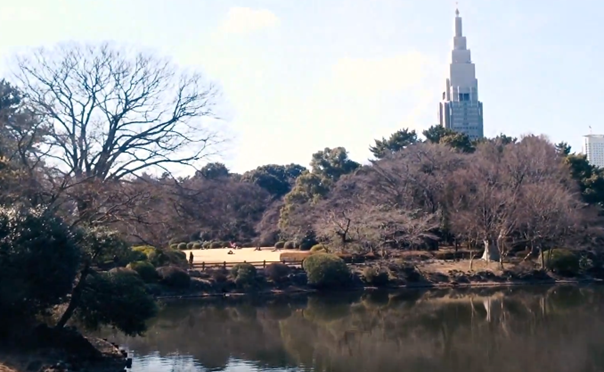
Samurai Museum
Another tourist attraction I highly recommend is the Samurai Museum, which is North-East of Shinjuku Station. As the name suggest the museum is dedicated to all things Samurai and is a fantastic showcase of Japanese samurai history. Entry into the museum is 1800 Yen for adults which includes a samurai sword show / presentation. During the show, if you’re lucky you’ll be given a lesson on how to hold a Katana (samurai sword) and some basic sword fighting techniques. You can also dress up in traditional samurai replica costumes which will provide some fantastic memories of your trip to the museum.
The guided tour was especially fantastic and our guide “Sushi” was very kind and informative. When you visit you’ll be guided through decades of samurai history and see actual samurai weaponry and armour warn by previous samurai and notable Japanese families.
One of the interesting things I learnt was that each family had a specific symbol (usually displayed on the helmet) or type of armour worn.
As I understand it the samurai were military nobility. Usually refer to as "Bushi" the samurai would serve clans and high-ranking land lords.
Interestingly the samurai began wearing armour back in the 7th Century with early forms of the armour known as yoroi. Each set of armour could weigh as much as 66 pounds or (approximately 30 kg). The armour was traditionally made out of small scale like pieces of iron which were woven into leather to form pieces of armour.
This was suitable until the 1500s when firearms began to become more prominent. The armour hence evolved into plate armour which provided greater protection against firearms. You can check out a few examples of these type of armour in my photos below.
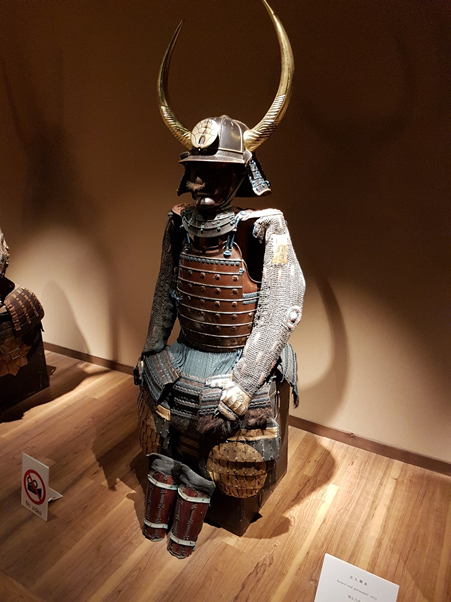
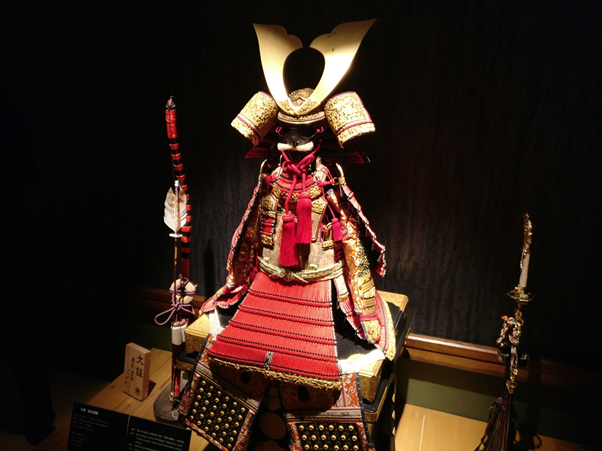
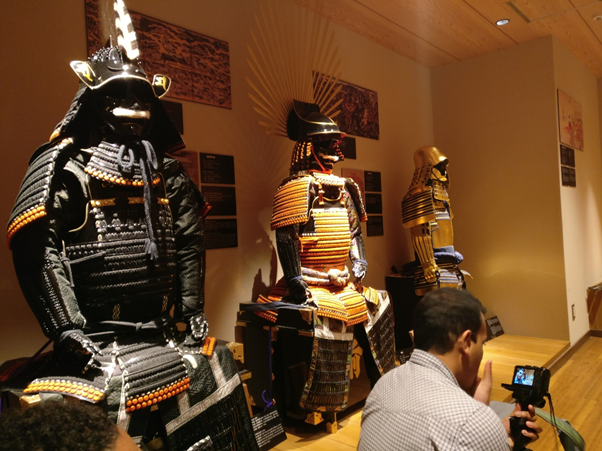
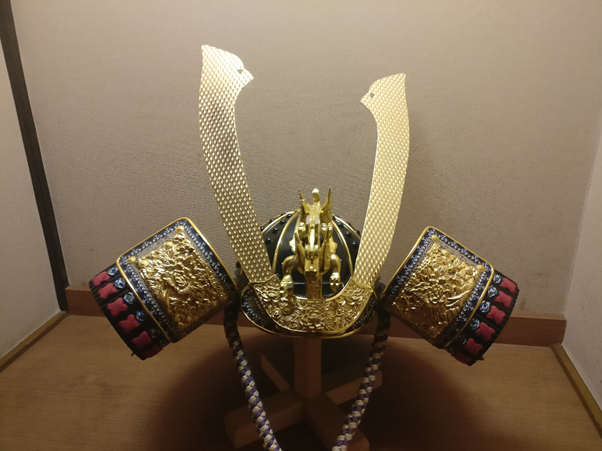
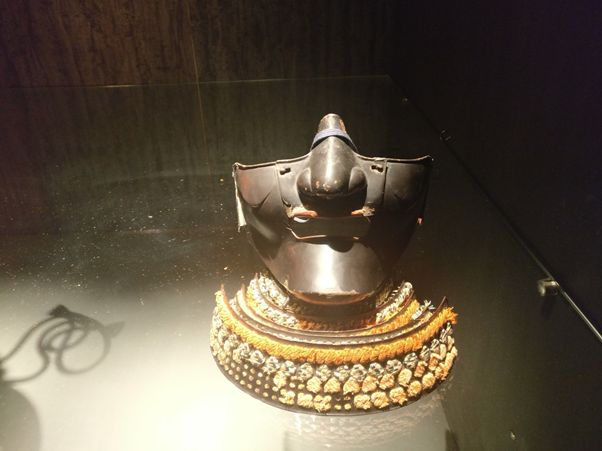
I was very surprised with some of the helmet armour on display, which I deemed as a little impractical. Does anyone know if samurai fought with these helmets on? Surely some of the designs would have been difficult to wear.
Something synonymous with samurai is the katana (pictured below) or long sword.
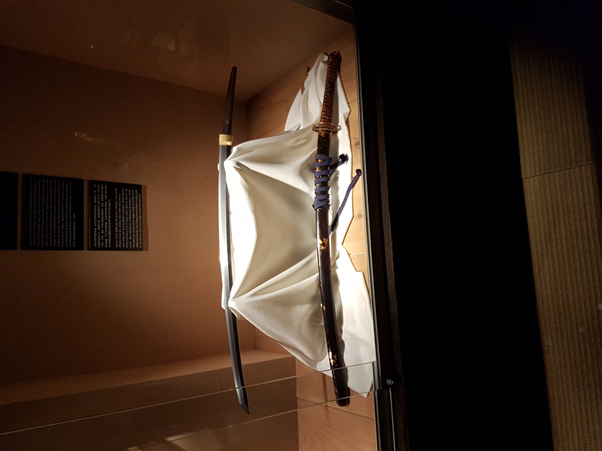
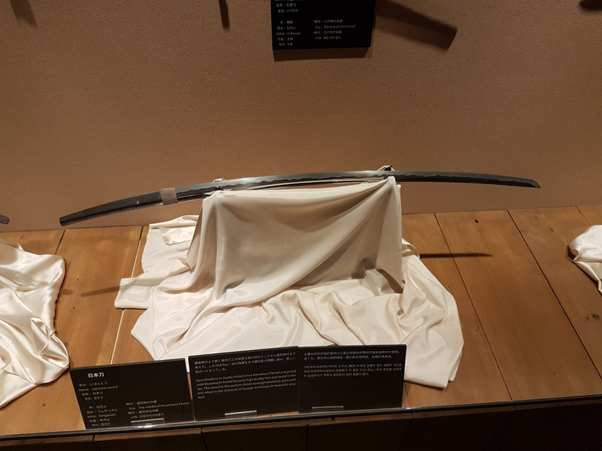
The samurai traditionally carried two swords. The katana (long sword) and the wakizashi (short sword). These swords were usually doubled edged and were hand forged. The swords were usually made out of iron sands which were remarkably pure of impurities such as sulphur and phosphorus which makes ordinary steel brittle.
What was interesting to learn about the Katana is that the sword has two layers of steel. An inner layer is typically made from steel with a slightly higher concentration of carbon to provide the sword greater impact resistance, which is useful in sword to sword combat. The outer edge of the katana however is made of steel with lower levels of impurities to give the sword it’s notorious razor-sharp edge.
It’s truly amazing to see the level of ingenuity that these master sword craftsmen had back then.
We also learnt about some of the soliders which fought side by side the samurai. These common soldiers or “Ashigaru” were sometimes promoted to samurai as a higher rank if they displayed signs of promise and potential. Although these soldiers traditionally used swords like the samurai, they later armed themselves with matchlock firearms which were introduced by the Portuguese in 1543. The type of amour usually worn by these soldiers is shown below.
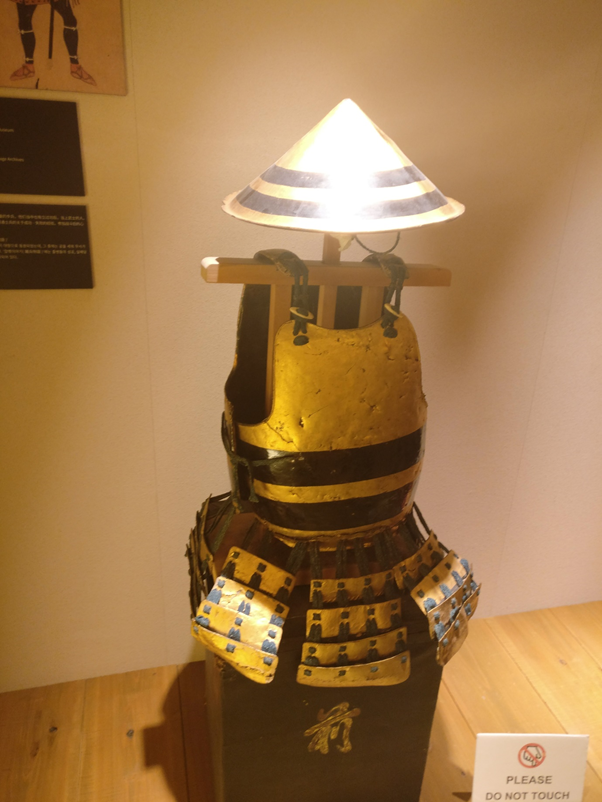
After walking through many samurai exhibits and learning about the samurai culture we were treated to a samurai sword show which was really interesting. The show is free with your purchase of admission. Check out a few of my photos from the show below.
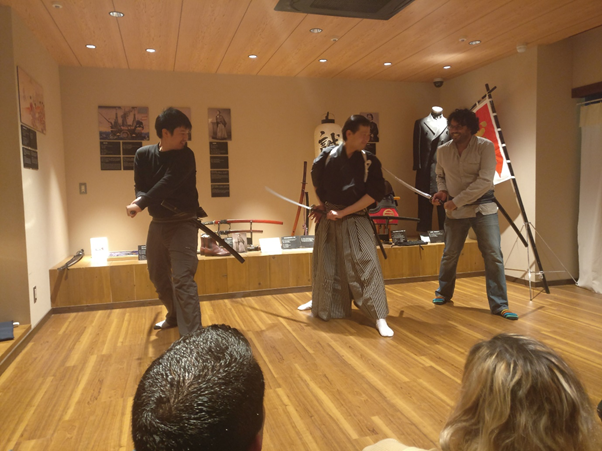
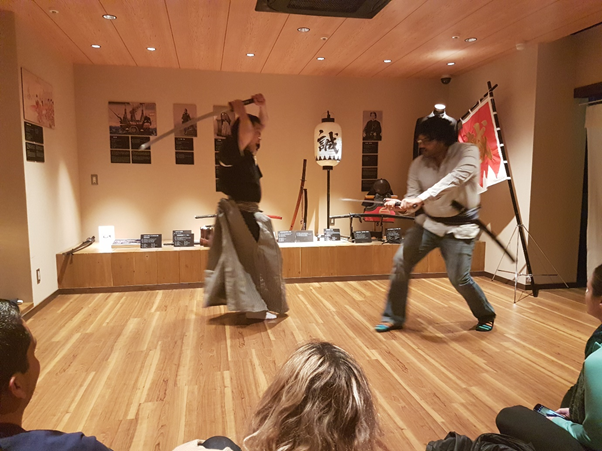
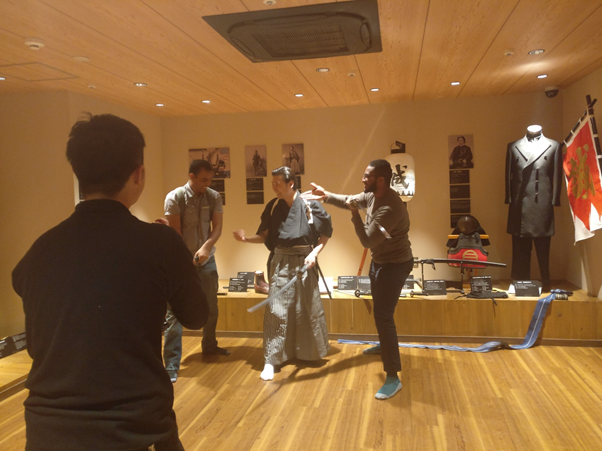
Catch your own dinner
After our experience at the samurai restaurant I decided to try out a restaurant called Zauo. It’s a franchise and pretty popular among Japanese.
The Japanese seem to have an obsession with freshness and this restaurant definitely reflects that value. Zauo, translates as ‘sit and fish’, and as you can guess it is a fishing themed restaurant that allows you to fish and catch your own meal. They even have cheaper prices if you get up and catch your own fish. Don’t worry this restaurant doesn’t make you do everything as a chef will prepare your catch either raw, grilled or fried.
The restaurant is interestingly themed and there is a large wooden boat deck which houses the majority of the dinning tables. Below deck are several fishing ponds which include all kinds of fish and marine life including: sea bream, snapper, mackerel as well as some more unique specimen such as eel, lobster, geoducks and clams.
After catching a sea bass and a sea snail called Sazae (pictured below) I returned to the dining table. I think I caught a fairly small sea bass, which came to approximately 1500 yen (cheapest fish on offer). The sea snail was another 600-700 Yen. My total meal came to approximately 2200 yen which I thought was a little steep given the small portion size, however I did appreciate the different experience I got from my dining experience.
It was quite a different experience actually catching my food for once which should be taken into account. I’m just glad the restaurant didn’t make me prepare the fish as well. To give you an appreciation for the restaurant check out this video on YouTube.
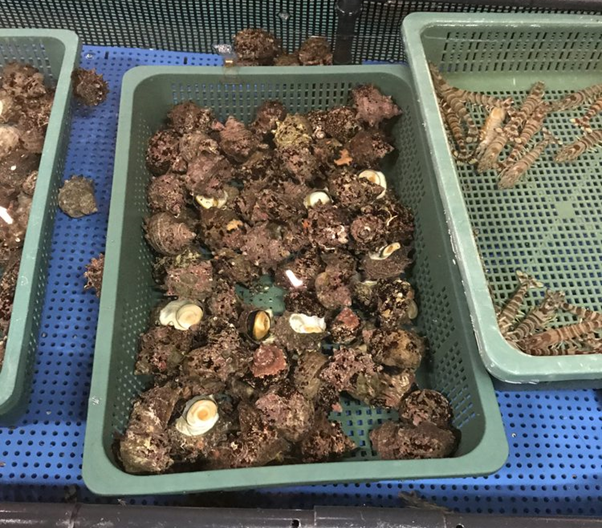
Robot Restaurant
If you’re looking for something weird to do in Japan something that I always wanted to check out was the Robot Restaurant. It’s a little pricey, however you can get some pretty great discount tickets from Klook (up to 30% off). If you want to experience some totally ridiculous Japanese craziness this could be the place for you. Have a look at the YouTube video below.
If you have any suggestions other suggestion of cool places to visit in Shinjuku, please leave a comment down below on where you've been and why you enjoyed visiting that place.
I hope you enjoyed reading about this travel blog. If you want to hear more about my adventures, please upvote this post and resteem with friends. Additionally, please follow me to hear more about my latest adventures. ✌️
About the Author
If you'd like to learn more about me or my blog series check out my introduction post
FML news!!!
💬 A special thank you to my new and existing followers. Thanks for supporting my blog series. I'd definitely love to get to know more of you so feel free to get in contact if you enjoy my post.
Great post! Looked like a really fun trip...that robot restaurant looks absolutely ridiculous haha
Ohh wow can't believe I missed this comment. Thanks @tysonjames. Yeah it does. I haven't been but I imagine it's a must if you want to experience that side of the culture.